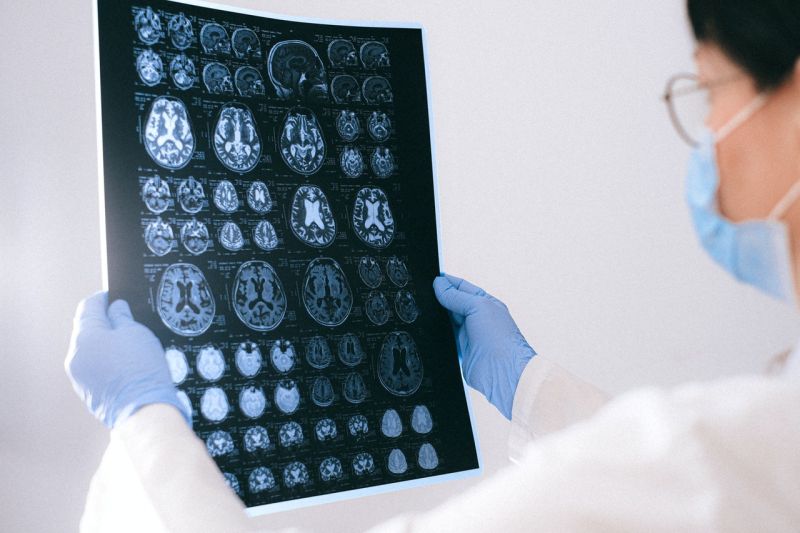Jakarta (ANTARA) – Neurosurgery specialist dr. Subrady Leo Soetjipto Soepodo explained several symptoms to watch out for because they could be an indication of a brain hemorrhage.
The member of the Indonesian Association of Neurosurgery Specialists said that bleeding in the brain basically does not occur suddenly, except for someone who has an accident.
Also read: RSPON confirms Tukul Arowana does not suffer from COVID-19 vaccination AEFI
“Headaches or numbness in several parts of the body such as numbness in the feet, hands, or face are basic symptoms that can occur and are often ignored by many people,” said the doctor who graduated from Neurosurgery Specialist from Padjadjaran University, in his statement, Sunday.
Recurrent headaches are an indication of blocked blood vessels or partially ruptured blood vessels. Both blockage of blood vessels and rupture of blood vessels can result in bleeding in the brain.
The Neurosurgeon Specialist at Primaya Hospital Pasar Kemis said that the symptoms that are most easily detected in people whose blood vessels are ruptured or blocked are abnormal facial functions, speech, movement and swallowing.
Another factor to watch out for is feeling often dizzy and takes time or not being able to get up immediately from a lying position.
“This happens because of changes in pressure from a flat, sitting, or upright position.”
Also read: Tukul Arowana’s son came to Cawang PON Hospital to visit his father
According to Subrady, straining when defecating, coughing repeatedly, or coughing while holding your breath can cause a person to suddenly become unconscious.
“Valsalva maneuver or straining can trigger an increase in intracranial pressure. This increase in intracranial pressure can cause rupture of blood vessels in people with high blood pressure causing cerebral hemorrhage. Valsalva maneuver or straining is also commonly performed when coughing, defecating, or holding your breath.”
The process of a person experiencing bleeding in the brain can vary. There is a count of days, months, or years, depending on the person himself whether the symptoms felt are considered complaints or not.
“The sooner a person recognizes the symptoms, the easier it is to minimize bleeding in the brain,” he said.
If a person has experienced bleeding in the brain, then a person can experience loss of consciousness, fall suddenly, or not wake up from sleep.
Also read: Tukul Arowana is admitted to the hospital, netizens pray for his recovery
Reason
Causes of ruptured blood vessels include abnormalities in blood vessels such as hard or atherosclerotic blood vessels, dilated blood vessels or aneurysms, leaking blood vessels or fistulas.
This can occur due to risk factors for diseases such as high blood pressure, obesity, cholesterol, diabetes mellitus, gout, and stroke. These diseases if not controlled regularly will be fatal which leads to bleeding in the brain.
Consumption of psychotropic drugs or blood-thinning drugs can also trigger an increase in blood pressure and lead to bleeding in the brain. In addition, the risk factor for age is also a trigger.
“The body condition of an elderly person will experience a decrease in body function compared to a young age,” he said.
Basically, everyone can do an initial scan for potential blockage and rupture of blood vessels, the easiest way is to check blood pressure through a blood pressure meter just after waking up and before doing activities.
“Waking up before activity is the most appropriate time to show blood pressure compared to after activity.”
Also read: Tukul Arowana accompanied his wife to the hospital
Although bleeding occurs in the brain, people need to understand that the trigger for bleeding in the brain can come from narrowing or bursting of blood vessels in other parts of the body such as the heart, arms, legs, or other body parts. To determine the occurrence of brain disorders due to rupture of blood vessels, examination imaging The gold standard that can be done is CT Scan of the Brain, DSA, and MRA.
To save the life of a person who has a bleeding in the brain, a doctor must regain control of blood pressure and save the organs in the person’s body. “We make sure that the bleeding that occurs in the patient can stop or clot to prevent major bleeding.”
The time or duration of a person’s recovery after a brain hemorrhage varies, depending on the amount of brain tissue that can be saved. Patients who have finished being treated at the hospital must continue to do rehabilitation. The healing process is gradual and the stages of healing between patients also vary depending on the organ that is experiencing malfunction and the person’s condition.
“Rehabilitation can be done starting from restoring people’s ability to chew, swallow, walk, talk, and various other stages of rehabilitation. In fact, in order for someone to return to work, the patient should be able to consult an occupational doctor to find out the appropriate stages of recovery in order to return to work.”
Basically, bleeding in the brain can be prevented by preventing risk factors and going to the hospital.
Several celebrities have been recorded as having suffered a brain haemorrhage, the most recent being comedian and host Tukul Arwana who is currently being treated at the National Brain Center Hospital (PON), Cawang, East Jakarta. However, Tukul’s condition was reported to have continued to gradually recover after undergoing surgery on September 22, 2021.
The 57-year-old comedian was rushed to hospital on Wednesday (22/9), where he underwent surgery on his head on the same day.
Also read: Tukul Arowana’s wife, Susi, reportedly died
Also read: Susi Siilikiti reportedly has a history of asthma
By Nanien Yuniar
Editor: Ida Nurcahyani
COPYRIGHT © ANTARA 2021
–


